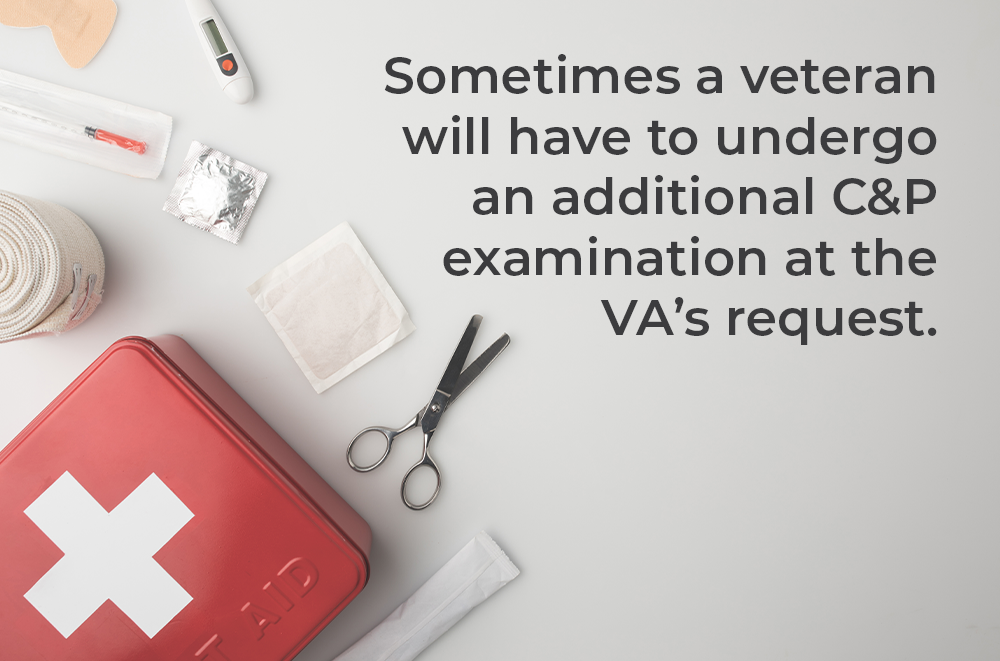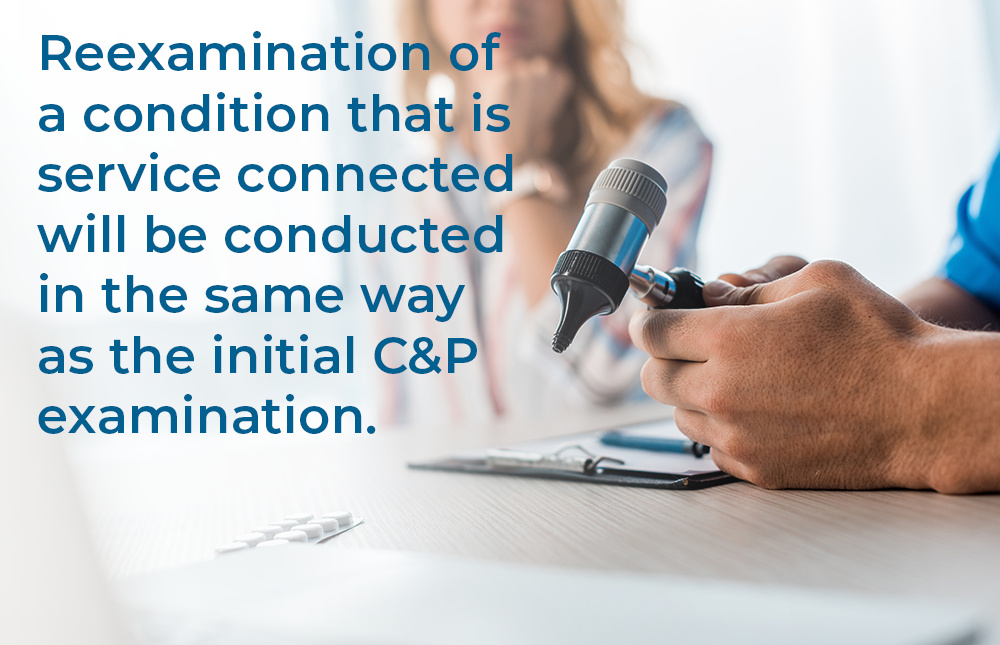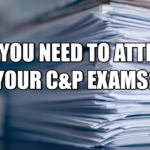Almost every veteran who is eventually awarded service connection from the U.S. Department of Veterans Affairs undergoes at least one Compensation and Pension Exam (C&P exam) at a VA medical center. This is often among the first steps of the VA disability claims process. What many vets aren’t aware of however, is that even though they’ve been awarded service connection, many veterans will have to participate in additional C&P examinations if they file a claim for an increased rating or when the VA requests a reexamination of a service connected condition.
What Happens During a VA Second C&P Exam?
Veterans with certain medical conditions or injuries may need an additional medical exam to assess their eligibility for VA disability benefits. This doesn’t require a new claim. We’re breaking down when a veteran may need a second C&P exam when seeking disability benefits.
Why Veterans Need Second C&P Examinations
Even if a disabled veteran has not filed a claim for an increased VA disability rating, sometimes a veteran will have to undergo an additional C&P examination at the VA’s request in order for the VA to evaluate the veteran’s current level of disability. Typically, the VA will order a reexamination if medical evidence indicates that there has been a material change in the disability since the last examination or if the veteran’s disability is likely to improve. For example, if a veteran is service connected for depression and his VA medical records show that his condition is improving, the VA may order a reexamination. Or, if the veteran is service-connected for a back condition, the VA may order a reexamination every few years because such a disability is likely to improve over time.

When you receive a rating decision from the VA, it might indicate that the VA will schedule an examination at a future date. Generally, routine future medical examinations are scheduled every 5 years if the disability in question is not static (meaning the condition has the tendency to get better and worse over time). The exam report then helps determine whether the veteran should receive adjusted VA compensation.
There are certain circumstances in which no future examinations will be scheduled. If a disability is static, symptoms have persisted without material improvement for 5 or more years, a disability from a disease is permanent and not likely to improve, a veteran is over 55 years old, the disability is rated at the minimal rating level, or a combined disability evaluation would not be affected even if a future examination resulted in the reduced evaluation of one or more conditions, a future examination will generally not be ordered.
Many veterans who file a claim for an increased rating assume that the VA will automatically schedule them for a C&P examination. This is not the case. In order for the VA to have a duty to schedule a C&P examination, there must be some evidence that there has been a material change in the veteran’s disability. For instance, if a veteran files a claim for an increased rating for his right knee condition, but there is no evidence in the veteran’s file, including VA medical records and private medical records, that the condition has worsened outside of the veteran’s own statement, the VA is not required to order a reexamination.

A C&P examination that is conducted for the purpose of reexamination of a condition that is already service connected will be conducted in the same manner as an initial C&P examination. It is important to remember that there is no “doctor/patient” relationship with the C&P examiner. The examiner is typically a VA doctor, not your own medical doctor, and they are there only to detail your symptoms, not to provide treatment. It is important to be upfront and honest with the C&P examiner and describe all the symptoms you are experiencing. The goal of the C&P examination is to detail your current level of functioning, so it is important that you make sure the examiner has all the information necessary to accurately reflect your disability. You may need to fill out a disability benefits questionnaire (DBQ) prior to the exam, so be sure to provide accurate information.
The most important thing to remember in regards to reexaminations is that if you get a notice that you have been scheduled for a C&P examination, you must attend the examination. A veteran who fails to report for a reexamination without good cause or without attempting to reschedule the examination may have his or her disability payments reduced or discontinued.
Have Questions About Your VA Claim?
If you have questions about a VA second C&P exam, contact your VA regional office. If you believe that you’re not receiving the appropriate VA disability compensation or disagree with the results of your veterans claim, contact the team at Hill & Ponton. Our social security and veterans disability law firm is available to provide legal advice and representation to former service members seeking veterans’ benefits. Contact us today for a free case evaluation.





